- Home
- Неизвестный
The Social Costs of Pornography: A Collection of Papers Page 16
The Social Costs of Pornography: A Collection of Papers Read online
Page 16
And yet it has been the hallmark of our modern approaches in the law— indeed a matter eliciting high genius and no small measure of self-congratulation— to address these kinds of questions by cleverly avoiding any kind of moral judgment at all. In this respect, the leading voice of modernity in the law is the voice of Justice Oliver Wendell Holmes. Holmes thought it would be a decided gain “if every word of moral significance could be banished from the law altogether, and other words adopted which should convey legal ideas uncolored by anything outside the law.”5 And distinctly “outside the law,” in this construal, would be any judgments of a distinctly moral character.
Tutored in this way, we would find legislators flexing their genius by dealing with prostitution and pornography with measures that carefully avoided any mention of those notions of right and wrong that have underlain the law in the first place. A notable case in point came in New York City years ago as the authorities sought to deal with those bogus massage parlors that were really brothels in disguise. How did urbane New Yorkers deal with that ruse? By insisting that “real” massage parlors establish their authenticity by appearing either in hotels with more than two hundred rooms, or in centers that contain facilities for sports, such as swimming pools (with a minimum of 1500 square feet), squash courts (which must be 25 feet wide, 45 feet long, and 20 feet high), or other kinds of courts whose dimensions may be specified with equal precision.6 The extraordinary precision reflects what I’ve called the ritual of empty exactitude, which the law is forced to undertake in defining the surface features of a problem when the authorities are either unable or unwilling to define the essence of the moral offense itself.
In our own day the example of a judge exemplifying the state of mind we are seeking to describe has been furnished with excruciating faithfulness by Justice David Souter. Souter wrote his undergraduate thesis on Holmes, and so it should not have been a surprise that when he confronts matters of prostitution or topless dancing, he insists that the law reach the matter, not by offering a moral judgment on the act itself, but a concern for the “secondary effects” of the acts.7
And so, for example, a neighborhood marked by prostitution and pornographic stores and tawdry entertainments is more likely to attract pickpockets and muggers than a concert featuring Mozart quartets. A Holmes or a Souter might argue that these “secondary effects” are reasons enough for restricting prostitution and pornography. But of course pickpockets and muggers are likely to be attracted to many happenings that draw a dense crowd —they are highly likely to be drawn to Grand Central Station on a Friday during rush hour, or to Yankee Stadium on the occasion of a game filling the park. And yet nothing in the array of these thefts or assaults would establish in any way that there is something unwholesome or illegitimate about Yankee games or Grand Central Station.
The puzzle that afflicts some commentators in dealing with these moral problems recalls to me that time, years ago, when I was invited by my late friend, Nachman Greenberg, to a meeting at the Illinois Masonic Hospital in Chicago. Greenberg and his staff of psychologists were dealing with the problems of incest and the abuse of children. I asked which of those maladies did they think I exemplified— that is to say, why call on me? The reason I soon learned: The clinicians were persuaded that anything they regarded as psychologically disturbing or undesirable would manifest itself in a material hurt of some kind. And so they were rather perplexed by the father who observed that, since he and his teenage daughter had been having sex, her grades had improved, her acne had cleared up, and she had stopped stuttering. She was flourishing.
What came as a kind of revelation to them was that something could indeed be wrong in principle even if the people involved were not suffering any material harm, and indeed even if they were apparently flourishing, with rosy cheeks and an upbeat sense of self-esteem. But the perplexity was amplified for the clinicians by the fact that the discipline would change: There was now a need to explain what was wrong in principle, and that task was not in their department, within the reach of their skills; it was the work of philosophers.
The sociologist Lynn Chancer, in her book Reconcilable Differences,8 rather reflected the moral ambivalence of feminist writers in facing that main, philosophic question. “To negatively judge any prostitute who undertakes sex work”—as Professor Chancer calls it, shading the moral question—“is exactly as foolish” as “hastily condemn[ing] young males” who use cocaine or participate in gangs “for their techniques of survival.”9 And yet she does want to hold back from saying that this “sex work” is no different from nursing or working as a professor or a lawyer.
But she regards this “sex work” as something women do as part of their “techniques of survival.” They are techniques cast upon them either by necessity, springing from their poverty; or from the patriarchal manipulation of men acting as pimps; or from the dangers of incarceration coming from its illegality; or from the want of health insurance in an occupation not usually covered with insurance plans provided by employers; or from the dangers posed by their “johns” or customers. 10 In other words, if this work is less than desirable, it is so mainly because of causes beyond the control of the prostitute—by her poverty or her gendered powerlessness in relation to men—or because of the conventions that keep her occupation illegal and vulnerable to the rapine of the police. Nothing in the act of selling sex to strangers marks any wrong that might involve the act of sex itself under these conditions—sex removed from a relation of love and commitment and from its natural telos in the begetting of offspring. There is no hint that she thinks anything in this sale of sex with strangers may mark a corrupted form of love and sex.
Professor Chancer is a sociologist, and finding the ground of moral judgments does not happen to lie within her field as she understands it, though that is not a stance necessarily implied in sociology as a field seeking to understand things human. But her perspective has been shared by writers who do take philosophy as their profession. Her argument was probably approximated fairly well by Professor Alan Goldman years ago in his essay, “Plain Sex.”11 He conceded that sex enveloped by love would be handsomely amplified. That tuna casserole served up by a loving wife may have a significance well beyond its culinary virtues. But he insisted that sex could be taken as plain sex, savored for its own delights, savored quite detached from any of those attributes of love and commitment and the children who embody that merging of the partners in sex. What is central, he said, is “the immersion in the physical aspect of one’s own existence and attention to the physical embodiment of the other.”12 Goldman recognized that sex can be part of a means-ends chain leading to a harm. Sex can be used to injure, not only in rape, but in many other subtle forms of wounding. But he held to the possibility that sex could be undertaken by people in evanescent relations, with eyes open, so to speak, with no expectation of commitment, and undertaken then with full innocence. What he rejected is the notion that sex has any moral implications at all. As he argued:
[T]here are no moral implications whatever [in sex]. Any analysis of sex which imputes a moral character to sex acts in themselves is wrong for that reason. There is no morality intrinsic to sex, although general moral rules apply to the treatment of others in sex acts as they apply to all human relations.13
There stands the case for “plain sex,” plainly made. If we have reservations about that position, we repair to an understanding nourished by generations, and consecrated in song: that there is, after all, something notably different about sex. Something that makes it virtually impossible to detach sex in this way from any trace of moral significance. It is not that this understanding cannot be ignored or conveniently overlooked by the obtuse, but that it is no more possible to purge moral significance from sex than it is to follow Holmes in purging moral significance from the very notion of law.
I think that the entry into the problem was disclosed years ago when a group of undergraduate women at Yale demanded that rape should be regarded, in the code of
student conduct, as a crime apart from others. Presumably, assaults were regarded as an offense under the statutes at Yale. If rape were nothing more than another assault—an unwarranted setting upon the body of another person—it would have been no more necessary to make any further specifications for rape than to distinguish assaults directed at the arms, say, from assaults directed at the legs. The undergraduate women must have been aware of rape as not merely a striking of the body, but an act of larger arrogance and violation. There is something different, after all, about the penetration, the forceful access to an intimacy reserved for someone with whom the woman has a special connection.
It may be hard to put the matter artfully, but it must be said also that this is an assault in which the assailant presumes to engage the reproductive capacity of the woman. This assault, unlike other assaults, may actually generate new life, and one does not typically engage in anything as grave as that with anyone who just happens along on the street.
It is hard to account for the revulsion that marks rape as a crime apart from others without recognizing what is different about the intimacy of sex and the portentousness of begetting new life. At the same time the revulsion would not be diminished in any way by the news that the assailant or the victim was sterile. Our understanding of the crime is formed by our awareness of the special significance and the moral import that invests the act of sex, this coupling of the bodies, even if it cannot beget offspring. That is why the moral outrage that the crime elicits is virtually indifferent to any showing that the probability of conception in rape is very slight (which it is) or that the rapist and the victim were incapable of generating children.14 But the very same reason may also inform the traditional objections to casual sexual encounters by people who may not seem impressed with the significance that envelops the act of sex, or who are conspicuously less than awed by an inventory of consequences that truly merits their awe.
The popular understanding here is probably a more accurate guide to the nature of the problem than the ingenious offerings of social scientists. The wrong of prostitution, for example, cannot be found in any contingent reckonings about venereal disease, the stimulation of crime, or the breakup of families. It must be found in principle—in a principle, we might say, that begins with the awareness of principle itself and of beings that alone have access to the understanding of principles. The aversion to prostitution finds its proper ground in the recognition that there is something of inescapable moral significance about sex in creatures who have moral reasons for extending or withdrawing their love. This is a point curiously overlooked— the distinct nature of love in beings who are moral agents. To speak of a love that merits commitment is to speak of a love that may endure even as looks wither with age. But that is to say, this is a love that finds something enduringly admirable, enduringly worthy of respect in one’s partner. And when we speak in those terms we are speaking of an enduring good, not reducible to material things; we are speaking of something of distinctly moral significance.
With that sense of things, the conceiving of children may be enveloped with a far more complicated understanding and purpose than the motives that inspire procreation in animals. In sum, we find creatures who treat as profoundly serious the terms of principle upon which sexual franchises are tendered, and that sense is shared, ironically, even by the people who seek their sexual freedom by denying any grounds for judging acts of sex. For something seems to make this matter, for everyone, a matter of central, not peripheral, importance.
The notion of a “commitment” marks another nexus between the law and moral judgment. I find my students speaking loosely about being in a “committed” relationship with their girlfriends or boyfriends, when all they mean is that they are “going steady” with each other. But that is quite different from a commitment made serious in the law. That sense of a commitment may be grasped even by the child, who somehow has an awareness that his parents have foregone the freedom to quit their association with him—or with each other—as it suits their convenience. There is only one kind of creature who can understand the notion of a commitment, or the idea of a principle or a “law,” that may compel his respect and obedience even when It runs counter to his interests and inclinations. As Maggie Gallagher said, in a line I’ve often quoted, “it is not free love but the vow that is daring. To dare to pledge our whole selves to a single love is the most remarkable thing most of us will ever do.”15 Only human beings, beings with a moral judgment, can do such a thing; only human beings can understand a love woven with those moral meanings. Prostitution distinctly mocks that kind of love, or the kind of love and commitment that provides the distinct and necessary setting for sex—if sex is understood with its full seriousness, and not made trivial by being reduced to another form of recreation, such as tennis or bridge.
Alan Goldman conceded that there was something about love that made a logical claim to monogamy or exclusiveness, but he argued that no such meaning attached to sex. Roger Scruton has pointed out that there is something about love that demands exclusivity and removes it from relations that are fungible—but he has not seen a division in that respect between love and sex. And so, for example, we could imagine someone saying to a friend, “I had a date to play tennis with Fred this week, or bridge with the Johnsons, but I can’t go. Would you take my place playing tennis with Fred or bridge with the Johnsons?” But we would react differently, I think, if someone said, “Look, I was supposed to have sex with Louise this weekend—could you go in my place?” The fact that the laugh comes from liberals as well as conservatives may suggest that there is something in the nature of the thing that strikes us instantly as inapt, not merely our conventions and political alignments.
I know rather sophisticated men who will speak about brothels they’ve known in Asia, and insist that men can visit brothels as they visit barbers, without undermining in any way their love for their wives and families. But nothing in that affectation of “realism” alters the point that prostitution mocks the kind of sex that is enveloped with love and commitment; the kind of sex and commitment that mark the character of “the family.” I have found that a sophisticated fellow, so flippant about the matter of Asian brothels, will not show any enthusiasm, or even a worldly openness to the matter, when he is asked how he would feel if his daughter, now at Yale, decided to make her career in prostitution.
Prostitution has elicited contempt over the years because it has been understood to run counter to that nature of sex and its moral meanings that seems to be understood by ordinary people as a matter of common sense. Or understood, as we might say, naturally. It is at odds in principle with that understanding of sexuality bound up with love and the family. Pornography, as writing about prostitutes, teaches the same idea, mocks the same institutions, and draws on the same wrong in principle.
It was one of Kant’s insights that for every kind of activity, there is a class of those activities that we ought not choose. To put it another way, anything we could name—any thing, any activity—could be part of a means-ends chain leading in a wrongful direction. The knowledge of driving a car could be used to drive an ambulance or a getaway car for the Mafia. A pen could be used to defraud or to sign a donation to a charity. As Alan Goldman recognized, sex too can be a vehicle for harms inflicted without justification: rape, incest, adultery.
Now is it conceivable that, among all of the things in this world, only the arts—whether writing, painting, film, theater—only the arts can be entirely free of this moral significance? Every artist I know is convinced that art is freighted with moral and cultural significance—that a society with a vibrant artistic life is a better society. They seem to be convinced that the arts can elevate the tone and character of a society. But if the arts can elevate, it must follow that they can also degrade or debase; they can injure and diminish. Several years ago, a group of black aldermen in Chicago invaded an art gallery in order to remove from its walls a portrait of the late Mayor Harold Washington, pictured wearing women
’s underwear. It was merely paint on a canvas, and yet these aldermen apparently felt stung by that portrait. They regarded it not only as an insult to the late mayor but an insult to the black community.
The arts do convey moral meanings, and as we’ve long understood, the arts teach. Films, plays, and books have themes; they hold up models of behavior; they are frequently imitated in ordinary life; and so, in one way or another, they are engaged in moral instruction. If that is the case, the community can hardly be unconcerned about the things that are taught or the sensibility that is cultivated through entertainments. As Walter Berns put it, “the laws cannot remain indifferent to the manner in which men amuse themselves, or to the kinds of amusements offered them.”16 We could hardly be faulted for worrying that the spectacle of gladiators being disemboweled in a matinee in Rome may not help to cultivate a people sensitive to the hurts suffered by those around them. Several years back a reporter in the New York Times recalled seeing a movie in which a man with a chain saw dismembered a woman. Behind him he heard a fellow savoring the moment deeply with moans of “yeah, yeah.” The reporter felt a pang of fear that he might meet this same man on the street when they left the theater. Then he recognized that this man could also be a fellow voter, someone who shares power with us over our lives together. Do we think that the pleasure offered by the entertainment helped to shape the moral sensibility of this spectator in a wholesome or less-than-wholesome way?

 The Bolivian Diary
The Bolivian Diary Caffeine Blues_ Wake Up to the Hidden Dangers of America's #1 Drug ( PDFDrive )
Caffeine Blues_ Wake Up to the Hidden Dangers of America's #1 Drug ( PDFDrive ) The Empty House
The Empty House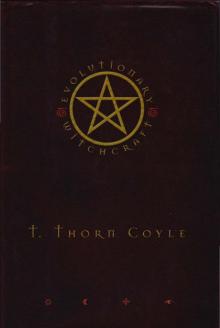 T Thorn Coyle Evolutionary Witchcraft (pdf)
T Thorn Coyle Evolutionary Witchcraft (pdf)![K J Emrick & Kathryn De Winter - [Moonlight Bay Psychic Mystery 01-06] - A Friend in; on the Rocks; Feature Presentation; Manor of; by Chocolate Cake; A-Maze-Ing Death (retail) (epub) Read online](http://freenovelread.comhttps://picture.efrem.net/img/nienyi/k_j_emrick_and_kathryn_de_winter_-_moonlight_bay_psychic_of_by_chocolate_cake_a-maze-ing_death_retail_epub_preview.jpg) K J Emrick & Kathryn De Winter - [Moonlight Bay Psychic Mystery 01-06] - A Friend in; on the Rocks; Feature Presentation; Manor of; by Chocolate Cake; A-Maze-Ing Death (retail) (epub)
K J Emrick & Kathryn De Winter - [Moonlight Bay Psychic Mystery 01-06] - A Friend in; on the Rocks; Feature Presentation; Manor of; by Chocolate Cake; A-Maze-Ing Death (retail) (epub) Next Day of the Condor
Next Day of the Condor Onyx
Onyx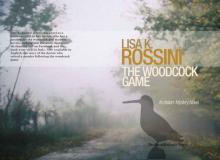 The Woodcock Game: An Italian Mystery Novel
The Woodcock Game: An Italian Mystery Novel Granta 122: Betrayal (Granta: The Magazine of New Writing)
Granta 122: Betrayal (Granta: The Magazine of New Writing)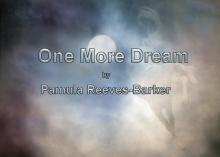 One More Dream
One More Dream Cosa Nostra by Emma Nichols) 16656409 (z-lib.org) (1)-compressed
Cosa Nostra by Emma Nichols) 16656409 (z-lib.org) (1)-compressed Cowboy by J. M. Snyder
Cowboy by J. M. Snyder Colossus
Colossus Star Trek - DS9 011 - Devil In The Sky
Star Trek - DS9 011 - Devil In The Sky Fright Mare-Women Write Horror
Fright Mare-Women Write Horror The Future Is Japanese
The Future Is Japanese In the Witching Hour
In the Witching Hour Mammoth Books presents Wang's Carpets
Mammoth Books presents Wang's Carpets The Cradle King: The Life of James VI and I, the First Monarch of a United Great Britain
The Cradle King: The Life of James VI and I, the First Monarch of a United Great Britain Stalking Moon
Stalking Moon Hostage To The Devil
Hostage To The Devil![Harris, Daisy - Mere Passion [Ocean Shifters 2] (Siren Publishing Classic) Read online](http://i1.bookreadfree.com/i/03/23/harris_daisy_-_mere_passion_ocean_shifters_2_siren_publishing_classic_preview.jpg) Harris, Daisy - Mere Passion [Ocean Shifters 2] (Siren Publishing Classic)
Harris, Daisy - Mere Passion [Ocean Shifters 2] (Siren Publishing Classic) Day, Sunny - Hot in Space (Siren Publishing Ménage and More)
Day, Sunny - Hot in Space (Siren Publishing Ménage and More) Five Books Of The Lives, Heroic Deeds And Sayings Of Gargantua And His Son Pantagruel
Five Books Of The Lives, Heroic Deeds And Sayings Of Gargantua And His Son Pantagruel I Never Thought I'd See You Again: A Novelists Inc. Anthology
I Never Thought I'd See You Again: A Novelists Inc. Anthology Billion dollar baby bargain.txt
Billion dollar baby bargain.txt![Chenery, Marisa - Turquoise Eye of Horus [Egyptian Shifters 1] (Siren Publishing Classic) Read online](http://i1.bookreadfree.com/i1/03/26/chenery_marisa_-_turquoise_eye_of_horus_egyptian_shifters_1_siren_publishing_classic_preview.jpg) Chenery, Marisa - Turquoise Eye of Horus [Egyptian Shifters 1] (Siren Publishing Classic)
Chenery, Marisa - Turquoise Eye of Horus [Egyptian Shifters 1] (Siren Publishing Classic) Cat Magic
Cat Magic Star Trek - DS9 - Warped
Star Trek - DS9 - Warped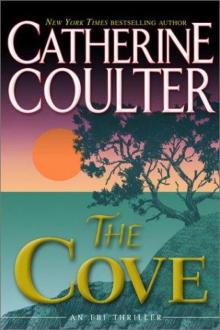 Catherine Coulter - FBI 1 The Cove
Catherine Coulter - FBI 1 The Cove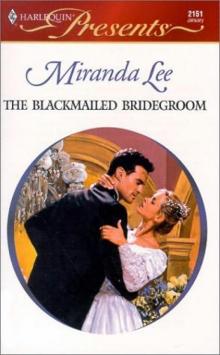 Miranda Lee -The Blackmailed Bridegroom
Miranda Lee -The Blackmailed Bridegroom The Seashell Anthology of Great Poetry
The Seashell Anthology of Great Poetry Dragon Moon
Dragon Moon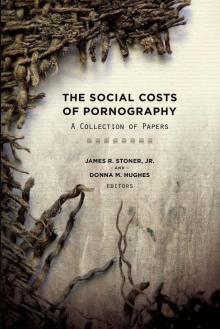 The Social Costs of Pornography: A Collection of Papers
The Social Costs of Pornography: A Collection of Papers That Is Not Dead
That Is Not Dead Best New Horror: Volume 25 (Mammoth Book of Best New Horror)
Best New Horror: Volume 25 (Mammoth Book of Best New Horror) This Christmas by J. M. Snyder
This Christmas by J. M. Snyder Faerie Cake Dead
Faerie Cake Dead CS-Dante's Twins
CS-Dante's Twins EFD1: Starship Goodwords (EFD Anthology Series from Carrick Publishing)
EFD1: Starship Goodwords (EFD Anthology Series from Carrick Publishing) Echo Burning by Lee Child
Echo Burning by Lee Child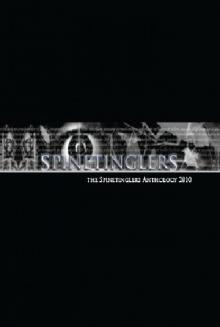 The Spinetinglers Anthology 2010
The Spinetinglers Anthology 2010 Wild Hearts
Wild Hearts Violet Winspear - Sinner ...
Violet Winspear - Sinner ... Broken Angels
Broken Angels FearNoEvil
FearNoEvil![Santiago, Lara - Range War Bride [Tasty Treats 11] (Siren Publishing PolyAmour) Read online](http://i1.bookreadfree.com/i1/03/30/santiago_lara_-_range_war_bride_tasty_treats_11_siren_publishing_polyamour_preview.jpg) Santiago, Lara - Range War Bride [Tasty Treats 11] (Siren Publishing PolyAmour)
Santiago, Lara - Range War Bride [Tasty Treats 11] (Siren Publishing PolyAmour) 8 Great Hebrew Short Novels
8 Great Hebrew Short Novels This Is How You Die: Stories of the Inscrutable, Infallible, Inescapable Machine of Death
This Is How You Die: Stories of the Inscrutable, Infallible, Inescapable Machine of Death The Steampowered Globe
The Steampowered Globe While We Wait by J. M. Snyder
While We Wait by J. M. Snyder Iron Tongue cr-4
Iron Tongue cr-4![Stieg Larsson [Millennium 02] The Girl Who Played with Fire v5.0 (LIT) Read online](http://i1.bookreadfree.com/i1/03/31/stieg_larsson_millennium_02_the_girl_who_played_with_fire_v5_0_lit_preview.jpg) Stieg Larsson [Millennium 02] The Girl Who Played with Fire v5.0 (LIT)
Stieg Larsson [Millennium 02] The Girl Who Played with Fire v5.0 (LIT) The Spinetinglers Anthology 2009
The Spinetinglers Anthology 2009 Bowles, Jan - Branded by the Texas Rancher (Siren Publishing Classic)
Bowles, Jan - Branded by the Texas Rancher (Siren Publishing Classic) Brown, Berengaria - Vivienne's Vacation (Siren Publishing Ménage and More)
Brown, Berengaria - Vivienne's Vacation (Siren Publishing Ménage and More) Inheritors
Inheritors Arthur Conan Doyle: A Life in Letters
Arthur Conan Doyle: A Life in Letters Cunningham, Pat - Coyote Moon (BookStrand Publishing Romance)
Cunningham, Pat - Coyote Moon (BookStrand Publishing Romance) Static Line
Static Line Ghost Mysteries & Sassy Witches (Cozy Mystery Multi-Novel Anthology)
Ghost Mysteries & Sassy Witches (Cozy Mystery Multi-Novel Anthology) Elizabeth Neff Walker - Puppy Love
Elizabeth Neff Walker - Puppy Love Ghosts in the Machine
Ghosts in the Machine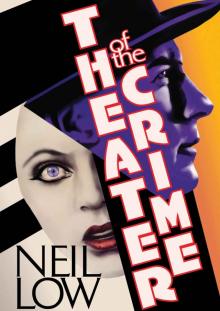 Theater of the Crime (Alan Stewart and Vera Deward Murder Mysteries Book 6)
Theater of the Crime (Alan Stewart and Vera Deward Murder Mysteries Book 6) Red Satin Lips, Book One (The Surrender Series)
Red Satin Lips, Book One (The Surrender Series) Catherine Coulter - FBI 4 The Edge
Catherine Coulter - FBI 4 The Edge StateoftheUnion
StateoftheUnion Fantastic Women: 18 Tales of the Surreal and the Sublime from Tin House
Fantastic Women: 18 Tales of the Surreal and the Sublime from Tin House Sara Wood-Expectant Mistress original
Sara Wood-Expectant Mistress original Nine-to-Five Fantasies: Tales of Sex on the Job
Nine-to-Five Fantasies: Tales of Sex on the Job Granta 133
Granta 133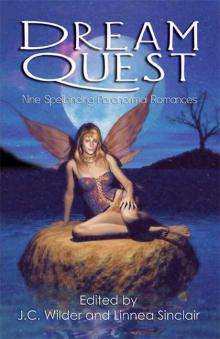 Dream Quest
Dream Quest The Warlock in Spite of Himself wisoh-2
The Warlock in Spite of Himself wisoh-2 Glenn, Stormy - Mating Heat (Siren Publishing Ménage Amour)
Glenn, Stormy - Mating Heat (Siren Publishing Ménage Amour) Davis, Lexie - Toys from Santa (Siren Publishing Classic)
Davis, Lexie - Toys from Santa (Siren Publishing Classic) Once Dead, Twice Shy
Once Dead, Twice Shy McSweeney's Enchanted Chamber of Astonishing Stories
McSweeney's Enchanted Chamber of Astonishing Stories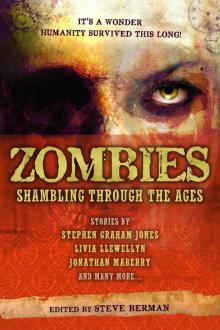 Zombies: Shambling Through the Ages
Zombies: Shambling Through the Ages Baghdad Without a Map
Baghdad Without a Map Banshee Cries (the walker papers)
Banshee Cries (the walker papers) Fire and Fog cr-5
Fire and Fog cr-5 The Twelve Hot Days of Christmas
The Twelve Hot Days of Christmas The Relations of Vapor: Dot - Connivance
The Relations of Vapor: Dot - Connivance![Harris, Daisy - Mere Temptation [Ocean Shifters 1] (Siren Publishing Classic) Read online](http://i1.bookreadfree.com/i2/04/11/harris_daisy_-_mere_temptation_ocean_shifters_1_siren_publishing_classic_preview.jpg) Harris, Daisy - Mere Temptation [Ocean Shifters 1] (Siren Publishing Classic)
Harris, Daisy - Mere Temptation [Ocean Shifters 1] (Siren Publishing Classic) World of Mazes cr-3
World of Mazes cr-3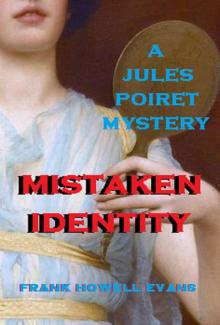 Mistaken Identity (A Jules Poiret Mystery Book 26)
Mistaken Identity (A Jules Poiret Mystery Book 26) Star Trek - DS9 - Fall of Terok Nor
Star Trek - DS9 - Fall of Terok Nor Not Like I'm Jealous or Anything: The Jealousy Book (Ruby Oliver)
Not Like I'm Jealous or Anything: The Jealousy Book (Ruby Oliver) Skaterboy by J. M. Snyder
Skaterboy by J. M. Snyder The Sorcerer_s Skull cr-2
The Sorcerer_s Skull cr-2 The Columbia Anthology of Modern Japanese Literature (Modern Asian Literature Series)
The Columbia Anthology of Modern Japanese Literature (Modern Asian Literature Series) New Erotica 5
New Erotica 5 Catherine Coulter - FBI 3 The Target
Catherine Coulter - FBI 3 The Target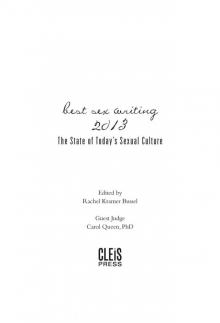 Best Sex Writing 2013: The State of Today's Sexual Culture
Best Sex Writing 2013: The State of Today's Sexual Culture Factoring Humanity
Factoring Humanity Huia Short Stories 11
Huia Short Stories 11 Call of the Wilds
Call of the Wilds Great English Short Stories (Dover Thrift Editions)
Great English Short Stories (Dover Thrift Editions)![Ramagos, Tonya - Logan's Lessons [Sunset Cowboys 2] (Siren Publishing Classic) Read online](http://i1.bookreadfree.com/i2/04/10/ramagos_tonya_-_logans_lessons_sunset_cowboys_2_siren_publishing_classic_preview.jpg) Ramagos, Tonya - Logan's Lessons [Sunset Cowboys 2] (Siren Publishing Classic)
Ramagos, Tonya - Logan's Lessons [Sunset Cowboys 2] (Siren Publishing Classic)![Morgan, Nicole - Sweet Redemption [Sweet Awakenings 1] (Siren Publishing Allure) Read online](http://i1.bookreadfree.com/i2/04/10/morgan_nicole_-_sweet_redemption_sweet_awakenings_1_siren_publishing_allure_preview.jpg) Morgan, Nicole - Sweet Redemption [Sweet Awakenings 1] (Siren Publishing Allure)
Morgan, Nicole - Sweet Redemption [Sweet Awakenings 1] (Siren Publishing Allure) Warbirds of Mars: Stories of the Fight!
Warbirds of Mars: Stories of the Fight! Original Version of Edited Godwin Stories(lit)
Original Version of Edited Godwin Stories(lit) Where The Hell is Boulevard?
Where The Hell is Boulevard?![Chemical [se]X Read online](http://i1.bookreadfree.com/i2/04/13/chemical_sex_preview.jpg) Chemical [se]X
Chemical [se]X Allison Brennan - See No Evil
Allison Brennan - See No Evil Sherlock Holmes Mystery Magazine #1
Sherlock Holmes Mystery Magazine #1